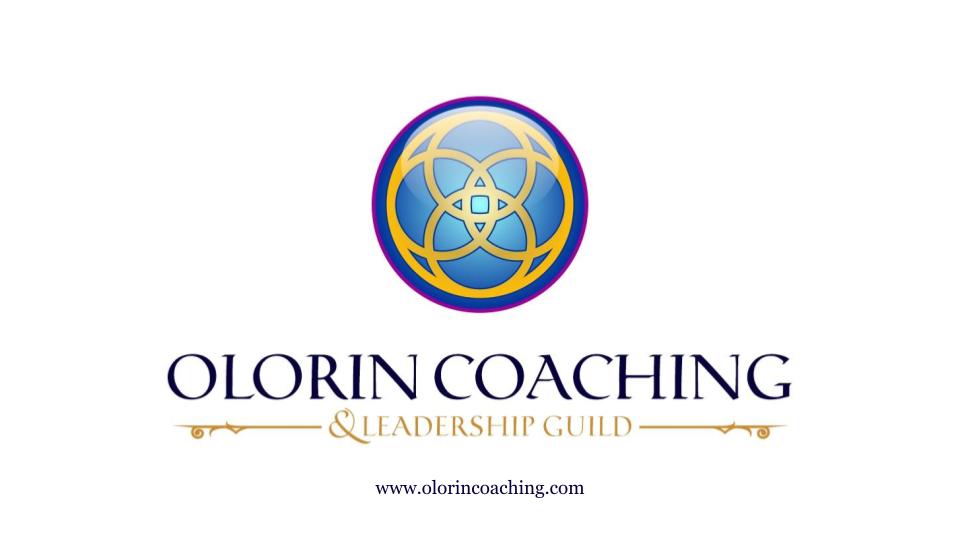
Essential Strategies for Leaders Steering Through Organizational Transformation
![]() Donald Stevens
Donald Stevens
![]() May 24, 2024
May 24, 2024
Successfully guiding your team through a major transition requires not just a clear strategic vision but also an empathy for and insight into interpersonal relationships with all of your stakeholders. Implementing distributed leadership is essential for driving change by delegating leadership responsibilities and promoting collective ownership. Transparent communication and procedural fairness are vital for inviting trust and fostering commitment among team members during periods of change. Crafting messages that address the specific concerns of different stakeholder groups can greatly boost engagement and minimize resistance. Understanding and aligning with implicit change leadership expectations ensures that leaders meet the unspoken needs of their teams, fostering a supportive environment for change. Additionally, participatory practices that actively involve stakeholders in the change process promote a sense of ownership and also reduce resistance. By integrating these insights- distributed leadership, transparent and fair communication, tailored messaging, alignment with implicit expectations, and participatory practices- executives can effectively transform resistance into engagement and drive innovation during organizational change. Distributed leadership involves sharing leadership responsibilities across various levels of the organization, which can enhance change mobilization. By fostering a culture of shared leadership, organizations can better manage the complexities of change. Action Steps: Empower Leaders at All Levels: Encourage leadership at different organizational levels to take ownership of change initiatives. Collaborative Decision-Making: Involve a diverse group of leaders in the planning and execution of change strategies to ensure a broad range of perspectives and expertise. Effective communication is critical in managing organizational change. Leaders must communicate transparently and ensure procedural fairness to invite trust and encourage commitment among team members. Action Steps: Transparent Communication: Regularly update team members on the progress of change initiatives and the rationale behind decisions. Ensure Procedural Fairness: Ensure that all team members perceive the processes involved in implementing change as fair and just. Tailoring communication to address the specific concerns and needs of different stakeholder groups can significantly enhance the effectiveness of change initiatives. Customized messages can help in reducing resistance and gaining employee buy-in. Action Steps: Identify Key Stakeholders: Understand the concerns and expectations of various employee groups. Customize Communication: Develop targeted messages that address the unique needs and concerns of different groups within the organization. Implicit change leadership theory suggests that team members have preconceived notions of what effective change leadership looks like. Aligning leadership behaviors with these implicit expectations can improve change management outcomes and increase affective commitment to change. Action Steps: Assess Leadership Styles: Evaluate whether current leadership behaviors align with team members' implicit expectations of effective change leadership. Adapt Leadership Approaches: Modify leadership behaviors to better align with team members' expectations and needs during times of change. Encouraging stakeholder participation in the change process can reduce resistance and foster a sense of ownership and commitment. Participatory practices involve engaging team members in decision-making and seeking their input on change initiatives. Action Steps: Engage Stakeholders Early: Involve stakeholders in the planning stages of change initiatives to gather input and build commitment. Feedback: Establish channels for continuous feedback and dialogue between stakeholders and leadership. Leading an organization through change requires a strategic approach encompassing distributed leadership, transparent communication, tailored messages, alignment with implicit leadership expectations, and fostering participatory practices. By implementing these strategies, executives can navigate transitions effectively, build stronger commitment among employees, and drive organizational success. Are you ready to lead your organization through its next transition? Contact me to explore how executive coaching can help you develop the skills and strategies needed to manage change effectively for personal and professional growth. Together, we can turn challenges into opportunities and drive your organization toward a successful future. Canterino, F., Cirella, S., Piccoli, B., & Shani, A. B. (2020). Leadership and change mobilization: The mediating role of distributed leadership. Journal of Business Research, 108, 42-51. https://doi.org/10.1016/j.jbusres.2019.09.052 Faupel, S., & Helpap, S. (2021). Top Management's communication and employees's commitment to change: The role of perceived procedural fairness and past change experience. The Journal of Applied Behavioral Science, 57(2), 204-232. https://doi.org/10.1177/0021886320979646 Haumer, F., Schlicker, L., Murschetz, P. C., & Kolo, C. (2021). Tailor the message and change will happen? an experimental study of message tailoring as an effective communication strategy for organizational change. Journal of Strategy and Management, 14(4), 426-443. https://doi.org/10.1108/JSMA-08-2020-0207 Hechanova, M. R. M., Caringal-Go, J. F., & Magsaysay, J. F. (2018). Implicit change leadership, change management, and affective commitment to change: Comparing academic institutions vs business enterprises. Leadership & Organization Development Journal, 39(7), 914-925. https://doi.org/10.1108/LODJ-01-2018-0013 Sahay, S., & Goldthwaite, C. (2024). Participatory practices during organizational change: Rethinking participation and resistance. Management Communication Quarterly, 38(2), 279-306. https://doi.org/10.1177/08933189231187883Leverage Distributed Leadership
Communicate with Transparency and Fairness
Tailor the Message to the Audience
Understand Implicit Change Leadership
Foster Participatory Practices
The Path Forward
Call to Action
References

Recent Articles
Transformative Leadership: Harnessing the Power of a Leadership Coach
Understanding the Role of a Le...
![]() Apr 23, 2024
Apr 23, 2024
Navigating Career Transitions: The Role of a Career Transition Coach
Understanding the Need for Car...
![]() Apr 21, 2024
Apr 21, 2024
Navigating Growth: Your Path to Personal Fulfilment with a Personal Growth Coach
Understanding Personal Growth ...
![]() Apr 22, 2024
Apr 22, 2024
The Ultimate Guide to Executive Coaching: Unlocking Your Leadership Potential
Understanding Executive Coachi...
![]() Apr 19, 2024
Apr 19, 2024
The Leadership Advantage: Strategies and Insights from Leadership Coaching
Understanding Leadership Coach...
![]() Apr 18, 2024
Apr 18, 2024
Navigating Career Transitions: A Comprehensive Guide to Career Transition Coaching
Understanding Career Transitio...
![]() Apr 17, 2024
Apr 17, 2024
Empower Your Journey: Personal Growth Coaching Unveiled
Understanding Personal Growth ...
![]() Apr 16, 2024
Apr 16, 2024
Leadership Development Unveiled: Essential Strategies for Growth and Impact
Understanding Leadership Devel...
![]() Apr 15, 2024
Apr 15, 2024
Achieving Excellence: The Power of Leadership Development Programs
Understanding Leadership Devel...
![]() Apr 20, 2024
Apr 20, 2024
Navigating Career Transitions: A Guide to Career Change Coaching
Understanding the Need for Car...
![]() Apr 13, 2024
Apr 13, 2024
Career Development Coaching Demystified: Your Pathway to Success
Understanding Career Developme...
![]() Apr 12, 2024
Apr 12, 2024
Mastering Career Transitions: Your Comprehensive Guide to Success
Understanding Career Transitio...
![]() Apr 11, 2024
Apr 11, 2024
Unlocking Your Potential: A Comprehensive Guide to Personal Development Coaching
Understanding Personal Develop...
![]() Apr 10, 2024
Apr 10, 2024
Mastering Leadership: The Executive Coach's Guide to Professional Growth
What is an Executive Coach?An ...
![]() Apr 14, 2024
Apr 14, 2024
Unleashing Success: A Comprehensive Guide to Goal-Oriented Coaching
Understanding Goal-Oriented Co...
![]() Apr 09, 2024
Apr 09, 2024
The Power of Transformational Coaching: Unlocking Your Full Potential
What is Transformational Coach...
![]() Apr 08, 2024
Apr 08, 2024
Empower Your Leadership Journey: Unlocking Skills Development
Understanding Leadership Skill...
![]() Apr 07, 2024
Apr 07, 2024
Unveiling the Power of Executive Leadership Programs: A Comprehensive Guide
Understanding Executive Leader...
![]() Apr 06, 2024
Apr 06, 2024
Building Stronger Leaders: Strategies for Effective Corporate Leadership Development
Understanding Corporate Leader...
![]() Apr 05, 2024
Apr 05, 2024
Empowering Your Journey: Harnessing Career Growth Coaching for Success
Understanding Career Growth Co...
![]() Apr 04, 2024
Apr 04, 2024
Career Advancement Unleashed: Your Path to Professional Excellence
Understanding Career Advanceme...
![]() Apr 03, 2024
Apr 03, 2024
Maximising Your Potential: A Comprehensive Guide to Career Coaching
Understanding Career CoachingC...
![]() Apr 02, 2024
Apr 02, 2024
Discover Your Best Self: The Magic of Self-Improvement Coaching
Understanding Self-Improvement...
![]() Apr 01, 2024
Apr 01, 2024
Embrace Change: Harnessing the Power of Personal Transformation Coaching
Understanding Personal Transfo...
![]() Mar 31, 2024
Mar 31, 2024
